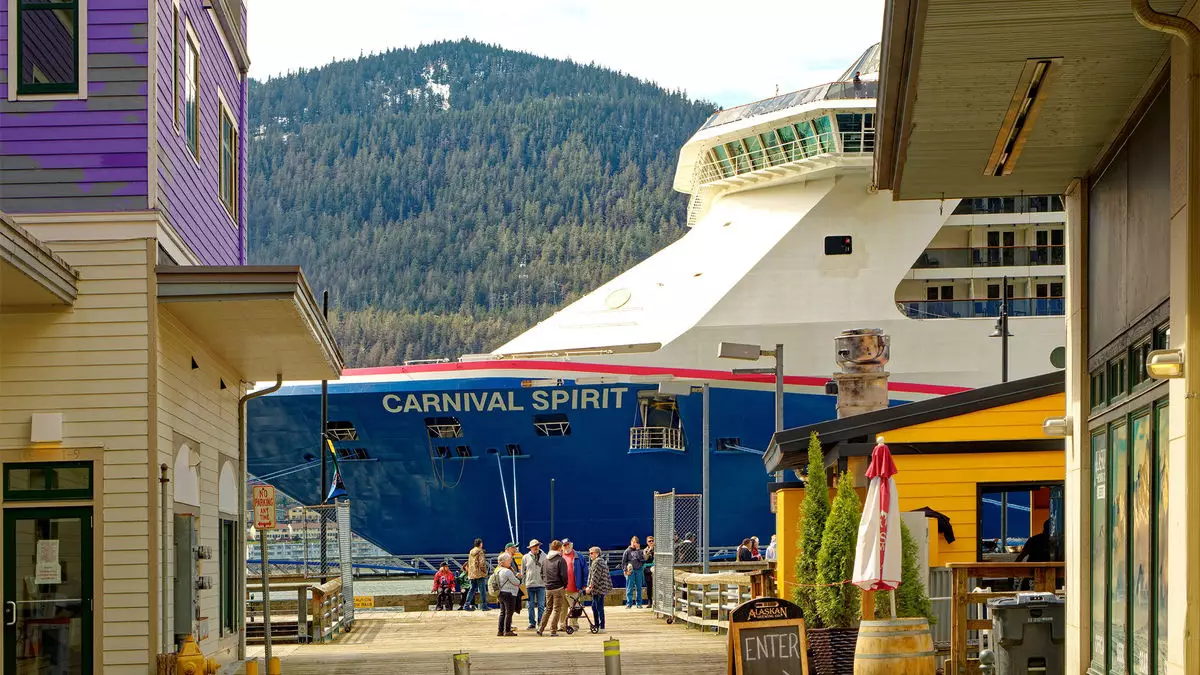In a decisive turn of events, residents of Juneau, Alaska, have largely voted against a proposed limitation on cruise ship operations in their port. Preliminary voting results indicate that approximately 60% of participants rejected Proposition #2, which sought to ban large cruise ships—those carrying 250 or more passengers—from docking on Saturdays and July 4th starting next summer. This legislative attempt emerged from local community concerns, reflecting a tension between tourism growth and the quality of life for residents.
The grassroots movement behind this ban was marked by significant community engagement, evidenced by the collection of over 2,300 signatures to bring the proposition to a vote. Proponents of the ban emphasized the potential negative impacts of increased cruise traffic on Juneau’s local environment, infrastructure, and general livability. The pandemic had temporarily halted cruise operations, leading many residents to enjoy a quieter summer, and the return of large cruise ships reignited concerns over overcrowding and noise pollution.
Juneau’s cruise traffic surged dramatically once operations resumed, with 2023 witnessing passenger volumes exceeding the pre-pandemic levels of 2019. The state experienced a historic influx of 1.7 million cruise visitors in 2023—an increase of roughly 30% since the last peak. The resurgence of the cruise industry has put pressure on local resources and raised questions about sustainability in a city already grappling with the pressures of tourism.
In light of rising passenger numbers, Juneau has taken steps to manage the influx, negotiating a five-ship cap that was enacted this year to limit the number of cruise vessels in port. Additionally, a strategic cap on lower berths will be implemented, restricting the total capacity to 16,000 from 2026 onward, with specific limits on Saturdays. These measures aim to strike a balance between the economic benefits of tourism—such as job creation and local business support—and the preservation of Juneau’s unique character and environment.
The challenges faced by Juneau are reflective of a wider trend across Alaska, where various coastal towns confront the complexities of managing cruise tourism. For instance, Haines plans to introduce a passenger fee in 2025 as a means to mitigate the local impacts of cruise ship visitors, with adjustments aimed at both visitor experience and revenue generation. This fee strategy highlights the proactive approaches other communities are adopting in response to a tourism sector that continues to evolve rapidly.
Ultimately, Juneau’s rejection of the Saturday cruise ban indicates a community wrestling with its identity amid growth and change. While much of the local population remains wary of the potential ramifications of increased cruise tourism, there is also recognition of the economic benefits that such activities can bring. Moving forward, the challenge will be finding sustainable solutions that address the needs of both residents and visitors, ensuring Juneau can thrive without sacrificing its unique charm. As the city navigates this intricate landscape, open dialogue and community engagement will be pivotal in crafting a future that reflects the values and aspirations of all Juneau residents.


Leave a Reply